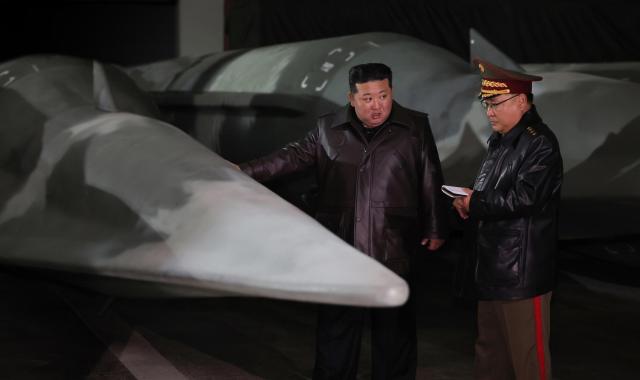
[Yonhap Photo]
However, despite the fuss, Seoulites carried on with their everyday life, getting ready to go to work and school, and cooking breakfast. About 30 minutes later, another emergency text message was sent out by the interior ministry, saying the evacuation warning was a false alarm. South Koreans, who are technically locked up in a war with their neighbors up in the north and were put under constant threats of missile, chemical, sabotage, and nuclear attacks for the last 70 years, shrugged off the early morning fiasco and continued with their lives as if nothing has happened.
The early morning craziness that frightened many people, especially foreigners dwelling in South Korea, was caused by a space rocket that was fired off by Pyongyang at 6:29 a.m. on May 31. However, the event was not foreseen. A day ago, Ri Pyong-chol, vice-chairman of North Korea's Central Military Commission of the Workers' Party, revealed that North Korea would soon launch its very first military spy satellite to monitor military activities of the United States and its allies in real-time.
North Korea also had previously notified the Japanese office of the International Maritime Organization (IMO) that a rocket carrying a satellite will be launched between midnight May 31 and midnight June 11 to let the world know that Pyongyang's suspicious-looking projectile is not an intercontinental ballistic missile (ICBM).
The Joint Chief of Staff reported at about 7:30 am. that the projectile fired by North Korea flew southwards from Dongchang-ri some 110 kilometers (68 miles) northwest of Pyongyang over Baekryeong Island, a South Korean island located near the Northern Limit Line. According to the defense ministry, the projectile went off the radar before it reached its projected landing area, hinting at chances of the space rocket being caught up in a mid-air explosion or crash landing into the sea.
Later, the Ministry of Interior and Safety announced that Seoul City's emergency notification had nothing to do with the North Korean projectile, arousing confusion among citizens who were frightened by the emergency evacuation alert by the capital city.
"The essence of the situation is that the actual threat by North Korea affected the Korean Peninsula. Amid a situation where the threat level of the North Korean projectile is yet unidentified, we took emergency procedures to counteract to chances of a crisis that can affect the lives and safety of citizens of Seoul and its surrounding cities," a Seoul official told reporters.




